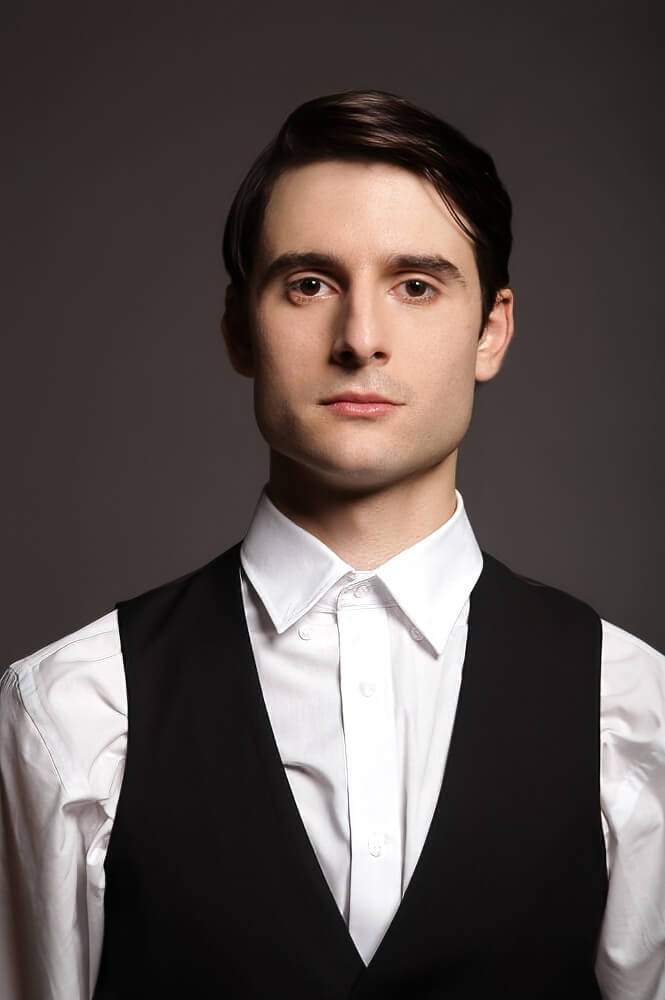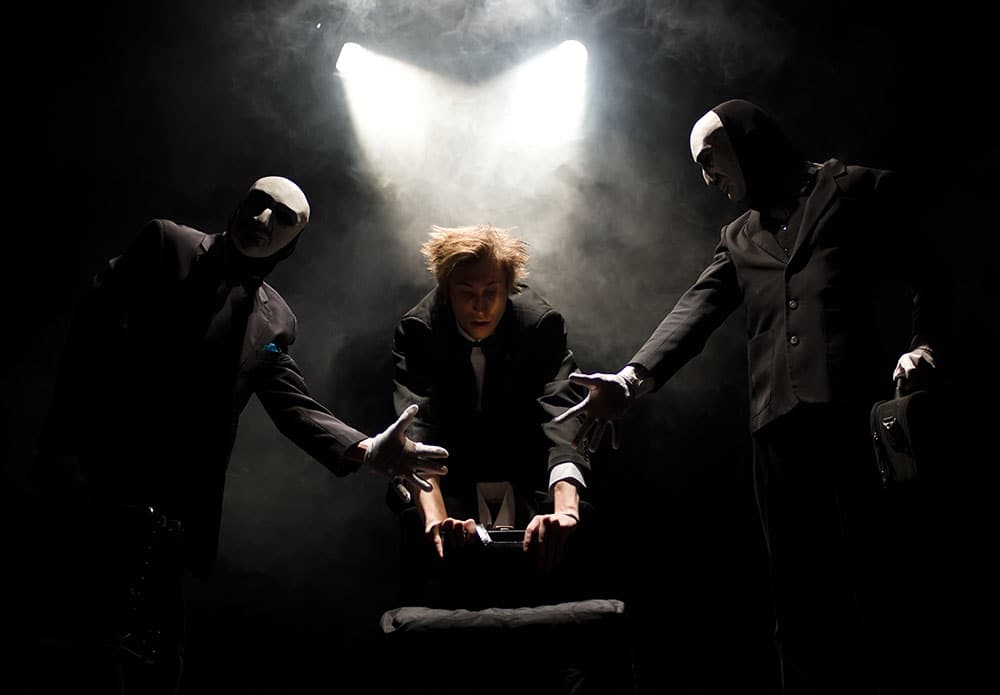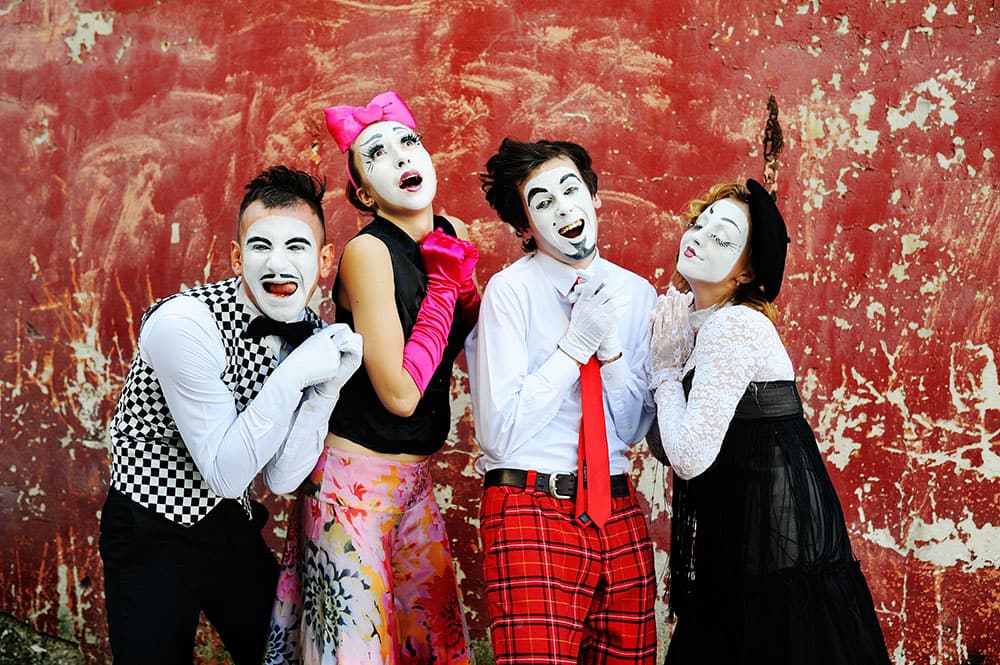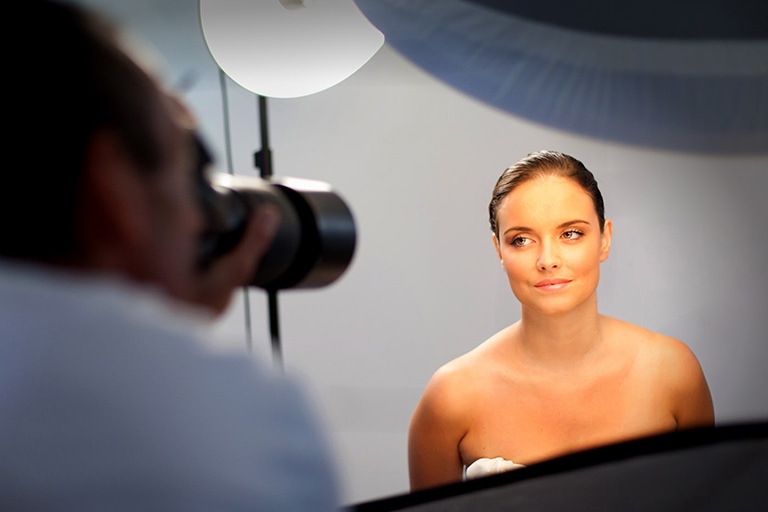How To Have A Successful Career In Acting
Become an actor
Getting started – introduction
So you’ve decided that an actor’s life is for you – what happens next? From the proverbial “pushy parents” who try to get their kids into showbiz to the star-struck teenagers, adults and seniors there are lots of things you need to watch out for on the road to being an actor. Ask yourself this – “why do I fancy becoming an actor?” If the answer is something to do with being rich and famous, then you could be setting yourself up to be hugely disappointed.
Related Articles
The first thing which any established or aspiring actor will agree with is this – the industry is incredibly tough to crack. There are thousands of actors in the world, and the majority of them have neither fame nor riches, there’s a lot of truth is the phrase “starving actor” you know. If you are determined to chase your dreams, then you need to know a few things about how to progress safely in your chosen field – and that means physically and psychologically as well as financially.

It takes training to become an actor. You also need a great portfolio to show yourself off with some high-quality head shots, a CV for your acting history and experience plus a show reel in which to market yourself and your abilities.
Agents
Everybody needs a good showbiz agent, but this may be easier said than done. An agent is, however, vital for you to reach your goals and get your foot in the door. Here are a few tips you need to remember about agents.
First of all, you should not have to pay anything at all to join the agency or to keep a place on their roster. Reputable agents get paid only as a percentage of your acting earnings – the percentage they charge does vary between agents so is something you need to discuss before making your decision.
WHAT’S THE DIFFERENCE BETWEEN A TALENT AGENT AND A BACKGROUND/EXTRAS AGENT?
The difference is pretty self-explanatory, talent agents have major talents on their books whereas extras/background agents have lots of people at their disposal to fill in with background and extras work.
What is a Co-operative Agency?
These are the agencies which are staffed by budding actors – these actors each take their turn to handle the business side of things and promote themselves to casting departments as part of a team. This helps to give you more control over your acting career, but it will mean a little-added pressure and responsibility. You won’t have an agent to protect you from some of the most stressful experiences of being an actor.
If you chose this type of acting agency, you will be not only responsible for yourself but also for other people. You must commit a certain amount of time to administrative duties, deal with finances, documentation and tedious paperwork. You must also be well versed in handling casting professionals. If you do decide that this is the road you want to take, you will probably be interviewed by other actors within the agency before being invited (potentially) to join them for a trial period.
What is a talent agent and what do they do?
A talent agent will submit your portfolio for any speaking role which you are suited to from the numerous offers they receive each day. If a casting director of any project is interested in you and thinks that you fit their criteria to audition, they will contact your agent who will then contact you with the details.
You will also contact your agent if you have any scheduling conflicts for auditions or filming, or any problems while working on set. They will also deal with all of the payments, take their cut and pay you the balance.
Everything regarding scheduling is done through your agent unless otherwise specified by the production and your agent.
Choosing the right agent for you, whether it is your 1st agent, or you are switching

Many people think that the best thing to do is to sign with the largest agency in town. However, this is not necessarily true. They might have a lot of clout in the industry, but you also may get overlooked. Acting is a competitive business, and you could get lost in the shuffle if you aren’t as experienced as somebody who has worked for many years in the industry.
If you happened to be an agent, do you think you would want to submit an actor who had some training but no or few credits? Or is it more likely that you would prefer to provide an actor who had worked for five years or more in the industry and was someone who was known to be reliable by casting directors?
We all want to believe that an agent will always provide every actor with the opportunity for a role, however realistically, many directors and agents tend to go with an actor they have already worked with in the past. However, new talented actors still do get signed all the time, are granted auditions and receive parts in theater, TV and film. You need to find somebody who believes in you and is willing to work hard on your behalf to help you get auditions and have casting directors notice you.
Remember, it’s your career. It isn’t up to an agent to do all your work for you. When working with an agent, each of you should be able to contribute fifty percent towards your commonly shared goal. You need to keep learning, make sure your head shots stay up to date and be ready for any audition that comes in.
If, for any reason you are considering changing agents, you need to be completely honest with any potential new agent. Tell them the reasons why you are searching for new representation. Just make sure you don’t talk badly about your previous agent. You don’t want an agent to think that you are someone who will bad mouth him or her around industry professionals if your working relationship doesn’t work out for some reason. In addition to the UK being a small place, agents are also very likely to know one another. So bad mouthing an old agent could cause problems for you.
Sending your package to agents
Contact agencies or agents to find out which ones are accepting new submissions (Some agents may indicate this on their websites). If they are, that’s great. Review their website to see if there are any specific instructions on how they want to receive submissions from actors. Some may prefer to get submissions by email and others by post.
If they don’t specify which method they prefer, send them your package by post.Include your head shot, CV and cover letter (Keep in mind, these three pieces of paper will provide agents with their first impressions of you). Always enclose a stamped address envelope (SEA) that is large enough to mail your 10 by 8 (A4) photograph, along with sufficient postage. Doing that will increase the chances of you receiving a reply. You may be asked to provide a show reel so that they can see how you appear on camera. If you do have one, you can mention in your cover letter that you have a show reel that is available on request.
If you submit your package via email, your cover letter will be in the body of the email, and your CV and head shot will be attached to the email. I recommend that you only send two headshots at most. An agent can always ask to see more if they are interested, or arrange to meet with you in person.
Agents and agencies tend to be very busy, so most of them would prefer that you post your package instead of going in personally to drop it off. If you mention in your cover letter that you’ll be checking in to confirm that your package was received – then be sure to follow up with that agent. Before calling the office, wait for a week. Keep your conversation with them simple and brief.
State your name and that you are calling to confirm that your CV and headshot has been received. A common response is that an agent will be touch if they are interested. Tell them you want to ensure that your package has been received and thank the person for their time.
Interviewing an agent
Keep in mind it isn’t just the agent interviewing you, because you are also interviewing the agent. The agent will consider various aspects of you, including your looks, training and experience. You need to consider numerous aspects of them as well, including their professionalism, goals, enthusiasm to work with you, their interest in you and their overall industry experience. Here are some potential things that you might want to consider or ask:
- Does the agent appear to have a genuine interest in you and helping to advance your career? How many other actors are on their roster?
- Do they have any more of “You” on their roster? (What sells you is your looks and head shot. If they have a lot of other clients with the same look that you have, there could be a risk of you being overlooked due to having to constantly compete with them).
- Why did they become an agent? What goals do they have?
- What percentage do they charge for Commercial Film & TV and Theater work?
Signing with an agent
If you feel like the agent is a good fit, and he or she feels the same way about you, then joining the roster is the next step. This generally involves a contract between you and the agent. You are going to want to know what all parts of the contract mean for you, as the contract is in place for your benefit, as well as your agent and anyone else who gets involved.
It is important to not act hastily when looking over a contract. Spend time looking over the contract away from the agent, as everyone knows he or she is going to want you to sign right away. You have to ensure that the contract is not going to be bad news for you concerning a future venture. This involves your own interests and goals, and that is why you need time to reflect upon the contract. This goes for both inexperienced agents and seasoned agents. The biggest caution for you would to not allow any excitement over the possibility of a contract determine the outcome.
There is a possibility that you might not understand certain aspects of the contract. This means that you should contact a lawyer to help explain those parts, or if you know a person that has been in your shoes with a possible contract, he or she might be able to help you as well. You can also contact the union.
If there are any parts of the contract that are not fine in your eyes, then you should mark them. These aspects of the contract can be reviewed and possibly changed to the point where agreement is reached by both parties.
You can now meet with the agent once again, and changes can be discussed. If any changes are made, initials from both parties need to be present on your contract, and all changes of course need to be included. The idea that the contract is in place for protection of all parties is the single most important factor when determining the final draft.
Getting turned down
If you are turned down by an agent, learn from the situation. Find out why by asking them questions, so that you can understand if you need to work on anything prior to meeting with another agent. And, don’t let the rejection get to you because you’re learning. What one agent is looking for is not what another agent is looking for, so just keep working on getting that contract in place.
Actor auditions

You get a call from your agent about an audition, and you could literally jump for joy. This could be your breakthrough moment, or it at least gets to be a mark on your resume. Once you’re done with the audition, you have high hopes that you got the part. Then, the waiting begins. After time goes by without a phone call, you may have second thoughts about your dream of an acting career.
Rejection is actually quite common when it comes to the acting world. As a matter of fact, did you know that in general, the rule of thumb is that one out of every 40 auditions is usually booked by an actor. You can fight those odds by addressing your confidence, looks, experience and training.
Look at each audition as a wonderful opportunity, and the following are some pointers to help you with your auditions. It’s important for you to gain a good understanding about the inner workings of the audition process, whether you have an agent or not.
The breakdown of auditions
This is the who, what, how, where and everything else you need to know, including what you should wear to the audition. You want to be prepared for each audition specifically, and you always want to show up early. A good rule of thumb is to be at least 10 minutes ahead of your scheduled audition. Also consider the fact that you could be in the studio for only five minutes, or you might be held up for a couple hours.
When you do land a job, have the breakdown on your person when attending the shoot so that you can make sure your contract does have the terms that were set for you originally.
1. How to prepare
In case you get a chance to be an actor or you are preparing to go for an audition somewhere, you should always have in mind that you are going to give the best of your best and nothing less. Shaving off a few inches from ones performance is easier than even trying to cultivate sense from it. One should also remember not to degrade him/herself too much in front of the directors and end up showering them with praises like they are gods but should instead be simple and talk in a more business tone.
We all know how differently we behave when we get nervous. We even end up doing stupid things. During auditions, one should avoid being nervous at all costs. This is due to the fact that when you are nervous you might even end up forgetting the script and the directors will notice this very easily hence disqualifying you. Having chosen acting as the means that will put food on your table, one should never be nervous while doing his/her sole job. In case you can not avoid being nervous, one should convert it into energy and express it in form of emotions hence expressing oneself even out better.
One should also dress up appropriately to avoid being misjudged by the directors and casting directors. One should also be conversant with the piece of work but not too overconfident or over prepared. Leaving some room/space is very advisable in case of any changes that may be done. By doing this, you will be referred to as being adaptable.
2. Self taped auditions
Once you are fully convinced that you are ready to face your directors and get recorded, you should try and have a short recording of 2-3 minutes as this will give you a better picture and prepare you more psychologically.
Tracking down a copy of the actual script or even the appropriate audition site would be a very good thing to do. This could be difficult mostly if the production will only be done at the casting stage. Mailing your self-taped auditions directly to the casting directors is a very wrong thing to do. Instead, one should forward the tapes via his/her agents not forgetting a written submission. It would be very easy for the casting director to communicate with your agent than you personally.
3. What to expect
In most commercial auditions, you will be very much shocked when you see lots of actors with the same look as yours. You will have to fill out the name of the project that you are planning to audition for. One also has to have his/her measurements, contact information and also the agents’ information. One should also remember to hand in a completely filled CV to the casting assistant personnel.
Forms are normally not filled during TV or Film auditions. But in case you happen to come across a union audition, you will find a sign-in sheet that you will have to fill. Even if you are not a part of the union, you should ensure you sign-in and sign-out every time. The camera operator and the casting director are some of the people that you will definitely meet in the audition room. In the room, the casting assistant may also be present. One has to stand on the spot right in front of the camera. You just have to follow their directions. Stating your name is just one of the things that you may be asked to say. After going through some auditions, you will soon come to find out that most of the auditions are the same. Saying thank you while leaving is highly recommended.
4. Call backs
In case you do your auditions well, you will receive call back messages. This time round the crowd will be bigger since the producer, director and even agency representatives will be present in the room. You have to repeat the steps you did during the auditions right from the dressing code. This time round, the directors will work you a little more just to test your skills during a performance.
Getting a callback after an audition simply means that you are on hold. This is due to the fact that they really liked your performance and you surely impressed them yet due to reasons only known to them, they don’t want to book you yet. Getting a callback and not being booked makes someone feel like he/she is being teased but this also tells someone that they got what it takes to take the stage in any production.
One should go for as many auditions as possible which are available over the internet. In the different auditions, you might end up meeting directors and producers who might have liked your performances at different auditions and hence end up booking you. Also when you undergo a series of auditions it gives you an opportunity to audition with or without the help of an agent.
One also gains experience and also attains a network. Also one is able to learn new styles and even new tricks that will help you in your acting carrier. In case you are a seasoned professional, undergoing numerous auditions will greatly help you remain on your toes and preventing you from easily rusting off. You will also have a good time and even fun during the auditions.
Head shots & photographers

The most important marketing tool as an actor, is your head shot. This photograph is the first, and possibly last, thing a casting director or agent looks at. To get the best photo, where should you go? What type of photo should you choose, black and white or colour? Should the setting be outdoors or an indoor studio? These are some of the decisions you’ll need to make before getting your head shot. The most important thing to know is whether or not you need this photograph in the first place.
Infants and babies do not need head shots. Because they grow rapidly and their appearance changes as they develop, the headshot may not show the current appearance of the child. If you’re only looking for Extra or Background work, you do not need this photograph. All others should get a professional head shot.
Where to start?
If you look online, many professional photographers have samples of their work and rates, on their websites. Look for a few different photographers and compare their prices, as well as what you’ll be receiving for your money.
A makeup artist can help you look your best in your headshot. Ask your photographer if they have anyone they would recommend. Don’t use a hairstylist to create a new look. When auditioning, you’ll be doing your own hair. Any hairstyle or makeup you use for your photo shoot should be something you can replicate at home.
If you’re ready to change your hairstyle, then ask your agent, if you have one, which style and look would work. Agents can look at your past head shots and determine which features may have been understated and, which need to be highlighted. You should ask your agent to have a look at the final selection of images before getting the head shots printed.
Before the shoot
You must know which part of you needs to be showcased in your headshots. The photographer will take care of the lighting, framing and positioning. However, it’s up to you to create the image.
What should i expect from the photo shoot?
When choosing a photographer, makeup artist or hairstylist, remember the casting director wants to see an image of the ‘real’ you. Your appearance needs to be as natural as possible. The casting director needs to be able to envision you in multiple roles, rather than to typecast you based on the image you put forth. Typecasting will limit your opportunities in acting.
Your eyes should be highlighted in your headshot. To make sure they’re visible, face the camera directly. Smiling can also make the eyes harder to see, so try to reduce the intensity of your smile, if it causes you to squint.
Wear simple clothes and accessories. Avoid scarves, hats, jewellery, glasses or other props. These all add character to the images which can typecast you. Furthermore, avoid clothes and fabrics that distract from your face. Busy patterns, logos, big collars and polo necks should not be worn to the photo shoot. You also don’t want your hands showing in the photo.
Before the photo shoot, determine the type of background you’ll use. Some photographers prefer outdoor settings. Whichever background you choose, remember that some of the best photographs have a contrast between the background and the hair colour. If you have dark hair, you may want to look for light backgrounds, and light hair should look for a dark background.
Which head shot should i choose?
You want to choose the photo that looks the most like you. Don’t choose one that shows what you want to look like. You may need to ask your agent or a close friend for their honest opinion. This photograph will be the basis for you getting auditions and meetings. The casting directors or agents want to see the person in the image. If you show up looking different, you’ll be wasting their time and yours.
GET OUR FREE GUIDES
STYLE GUIDES
Our Style Guide will help you choose the right outfits for your photo session.
POSING GUIDES
Our Posing Guide is full of tips and tricks on how to move and feel confident in front of the camera.
Ready to Start?
Get In Touch



